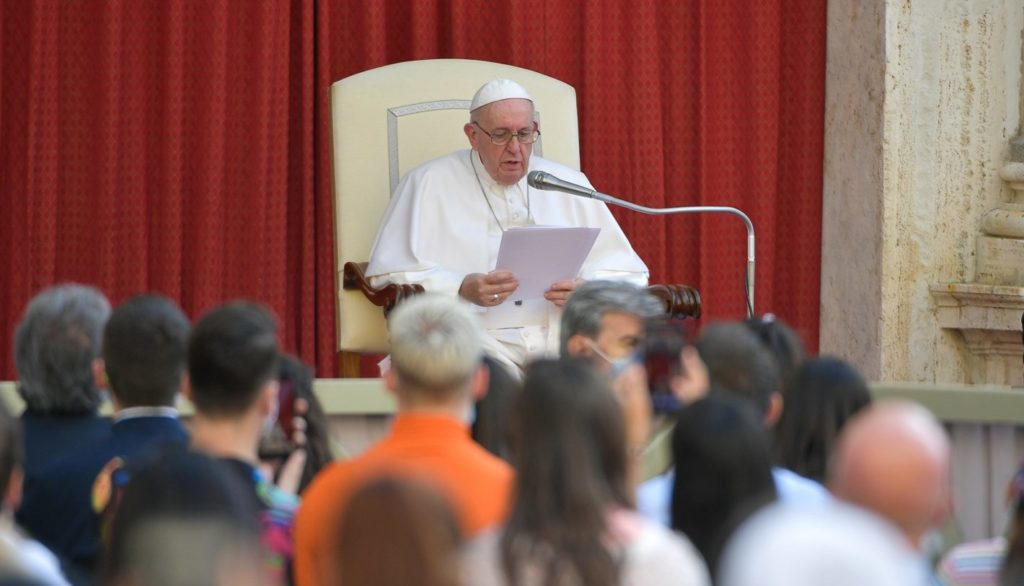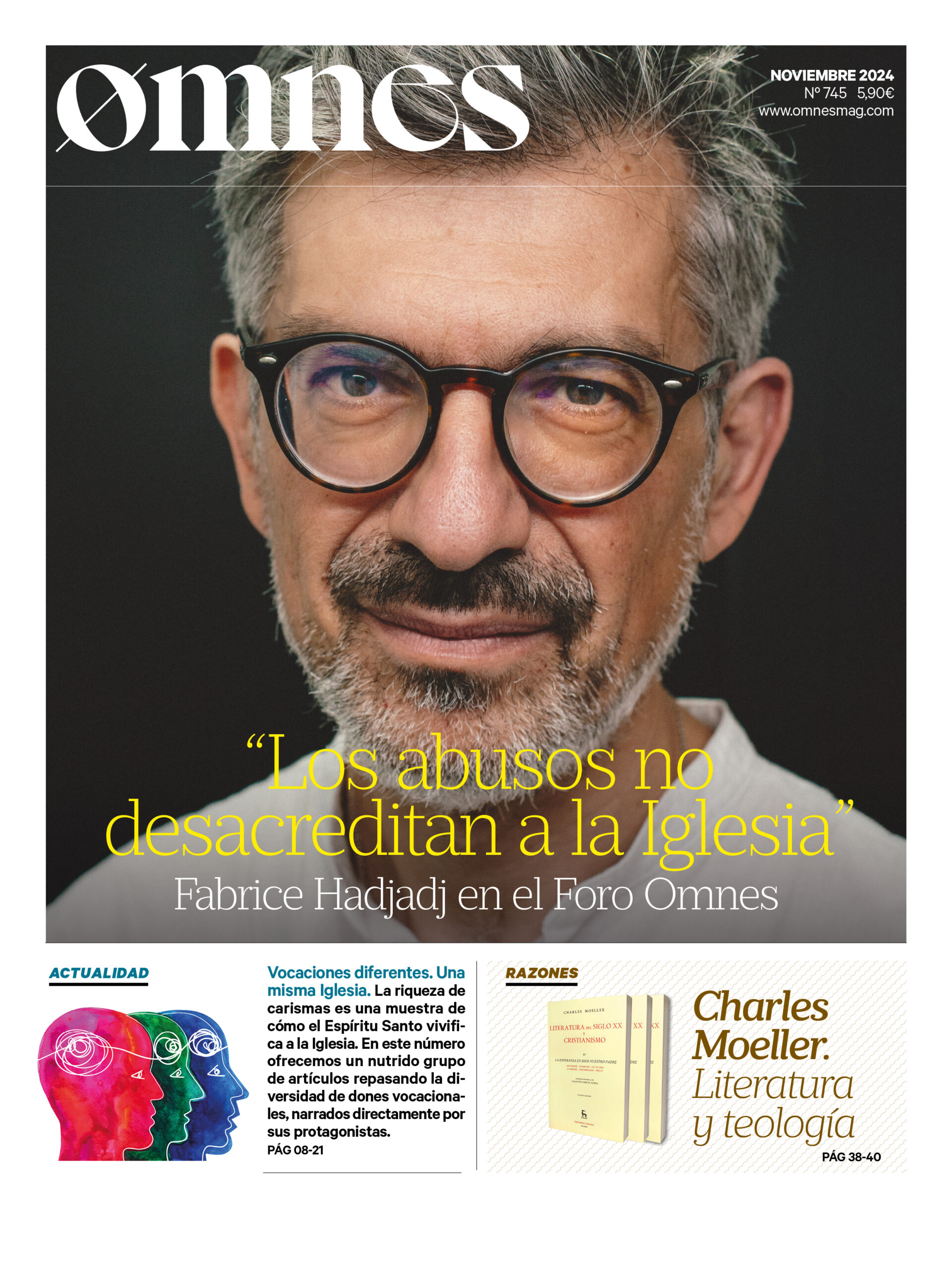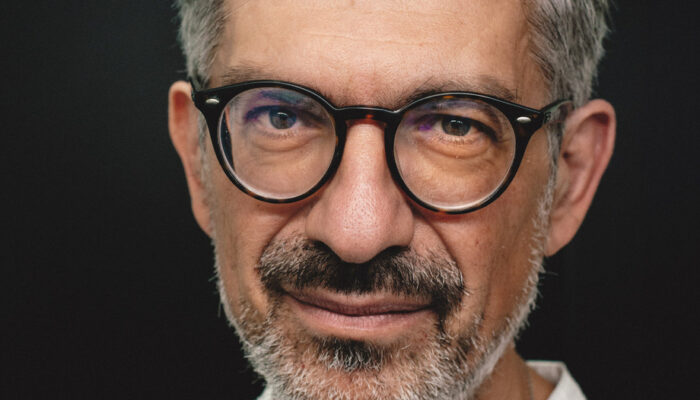In today's audience, Wednesday, June 23, and after a long itinerary dedicated to prayer, the Pope began a new cycle of catechesis today, focusing on some of the themes that the Apostle Paul proposes in his Letter to the Galatians. The Pope says that "it is a very important Letter, I would even say decisive, not only to get to know the Apostle better, but above all to consider some of the arguments that he confronts in depth, showing the beauty of the Gospel. In this Letter, Paul cites several biographical references that allow us to know his conversion and his decision to place his life at the service of Jesus Christ. He also deals with some very important themes for the faith, such as freedom, grace and the Christian way of life, which are extremely timely because they touch on many aspects of the life of the Church today.
The first feature that the Pope wanted to highlight in this Letter is "the great work of evangelization carried out by the Apostle, who had visited the communities of Galatia at least twice during his missionary journeys. Paul addresses the Christians of that territory. We do not know exactly what geographical area he is referring to, nor can we state with certainty the date on which he wrote this Letter. We do know that the Galatians were an ancient Celtic population that, through many vicissitudes, had settled in that extensive region of Anatolia that had its capital in the city of Ancyra, today Ankara, the capital of Turkey".
"Paul says only that, because of an illness, he was forced to stop in that region (cf. Gal 4,13). St. Luke, however, in the Acts of the Apostles, finds a more spiritual motivation. The two facts are not contradictory: they indicate rather that the path of evangelization does not always depend on our will and our plans, but requires a willingness to allow ourselves to be shaped and to follow other paths that were not foreseen. What we can verify, however, is that in his untiring evangelizing work the Apostle had succeeded in founding several small communities, scattered in the region of Galatia".
The Pope underlines that "what we should note is the pastoral concern of Paul who, after having founded these Churches, became aware of a great danger to their growth in faith. In fact, some Christians coming from Judaism had infiltrated, who cunningly began to sow theories contrary to the Apostle's teaching, even to the point of denigrating his person. As can be seen, it is an ancient practice to present oneself on some occasions as the sole possessor of the truth and to try to lower with slander the work done by others. Those adversaries of Paul maintained that also the pagans should be subjected to circumcision and live according to the rules of the Mosaic law. The Galatians, therefore, would have had to renounce their cultural identity in order to submit to the norms, prescriptions and customs typical of the Jews. And not only that. These adversaries maintained that Paul was not a true apostle and therefore had no authority to preach the Gospel.
Francis notes that "the Galatians found themselves in a crisis situation. What were they to do: listen to and follow what Paul had preached to them, or listen to the new preachers who accused him? It is easy to imagine the state of uncertainty that animated their hearts. For them, to have known Jesus and to have believed in the work of salvation accomplished by his death and resurrection was really the beginning of a new life. They had embarked on a journey that allowed them to finally be free, even though their history had been woven by many forms of violent slavery, not least that which subjected them to the emperor of Rome. Therefore, faced with the criticisms of new preachers, they felt lost and uncertain about how to behave and whom to listen to. In short, the stakes were high!"
Finally, Pope Francis connected with the actuality of the experience that various Christians live in our days. "There is no lack of preachers today either," the Pope says, "who, especially through the new media, do not present themselves first of all to announce the Gospel of God who loves man in Jesus Crucified and Risen, but to reiterate insistently, as authentic "custodians of the truth," what is the best way to be Christian. They strongly affirm that the true Christian is the one to whom they are linked, often identified with certain forms of the past, and that the solution to the current crises is to go back in order not to lose the genuineness of the faith. Today too, as then, there is the temptation to close oneself up in certain certainties acquired in past traditions. Following the teaching of the Apostle Paul in the Letter to the Galatians will help us to understand which path to follow. The way indicated by the Apostle is the liberating and ever new way of Jesus Crucified and Risen; it is the way of proclamation, which is realized through humility and fraternity; it is the way of meek and obedient trust, in the certainty that the Holy Spirit is at work in every age of the Church".








